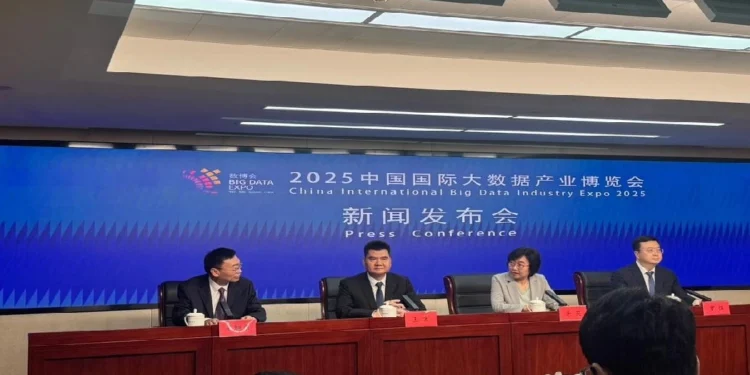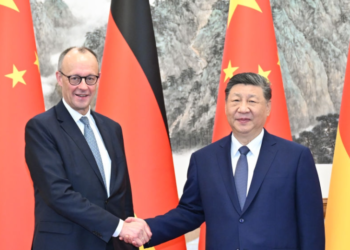TIANJIN; Prime Minister Shehbaz Sharif on Sunday reaffirmed that the policies and initiatives of Pakistan’s current government were closely aligned with the vision and philosophy of Chinese President Xi Jinping, a framework rooted in progress, prosperity, and the welfare of the people.
The premier arrived in China a day earlier to participate in the Shanghai Cooperation Organisation’s (SCO) Council of Heads of State (CHS) summit, where he is scheduled to hold important meetings with President Xi and Premier Li Qiang. His visit is part of ongoing leadership-level exchanges aimed at strengthening Pakistan-China ties and advancing multilateral cooperation.
During his address at Tianjin University, Shehbaz urged Pakistani students studying in China to acquire the latest knowledge and technological expertise with commitment and dedication. Stressing the importance of education, he described the students as “torchbearers of Pakistan-China friendship” and encouraged them to return home as “architects of Pakistan’s future.” He highlighted that more than 200 students from Pakistan were enrolled at Tianjin University, while around 30,000 Pakistanis were currently pursuing higher studies across China. The government, he added, had also sent 1,000 agriculture graduates to learn modern farming techniques, underscoring the critical role of vocational training in Pakistan’s development.
Shehbaz praised President Xi’s “inspiring” leadership and long-term strategic planning, which he said had lifted 800 million people out of poverty and transformed China into the world’s second-largest economy and a global powerhouse. He hailed these achievements as a testament to China’s commitment to building a shared destiny for humanity. According to him, President Xi’s philosophy demonstrated to the world that durable friendship and prosperity were best achieved through multilateralism and collective progress, rather than unilateralism or exclusivity.
Reflecting on the depth of Pakistan-China ties, the prime minister said the friendship had withstood the test of time and historic challenges due to the mutual trust, sincerity, and clear vision of both nations. He recalled milestones in bilateral relations, including Pakistan’s recognition of the People’s Republic of China as the first Muslim-majority country to do so and the first direct Pakistan International Airlines (PIA) flight from Karachi to Beijing six decades ago. He noted that the two countries’ ties were as ancient as the Silk Road and rooted in centuries-old cultural and religious connections, including links between Gandhara, Taxila, and Beijing.
Shehbaz emphasized that Pakistan’s government was equally determined to fight corruption and poverty, claiming that “not a single corruption case” had surfaced during the current administration. He said Pakistan shared a common destiny with China and must draw lessons from China’s development model, particularly in agriculture and technology, to bring prosperity to its people.
Later this week, Shehbaz will join other SCO leaders—including those from China, Russia, India, Iran, and Central Asian republics—as well as observers and dialogue partners, to discuss regional security, multilateralism, and sustainable development. He is also expected to meet Chinese corporate leaders and address a Pakistan-China Business-to-Business (B2B) Investment Conference in Beijing.
According to the Foreign Office, the visit will mark the launch of the long-delayed second phase of the China-Pakistan Economic Corridor (CPEC-II), with a focus on industrial cooperation. It reflects the importance both countries attach to their “All-Weather Strategic Cooperative Partnership” and their commitment to deepening collaboration on regional and global issues.


















